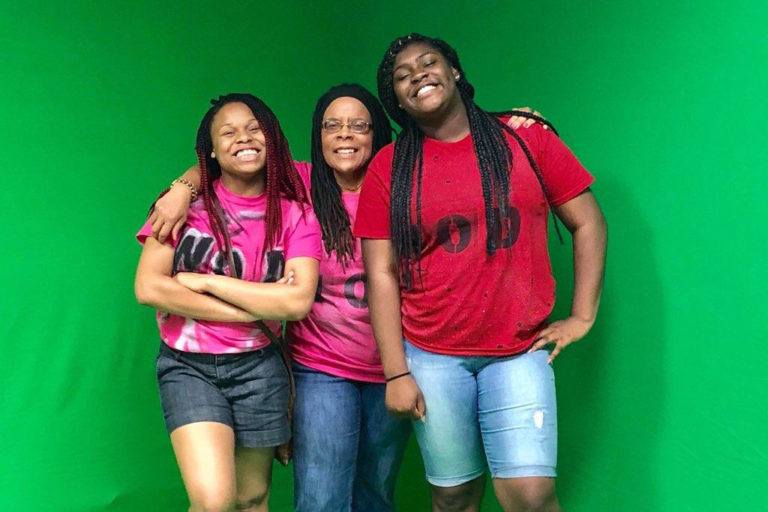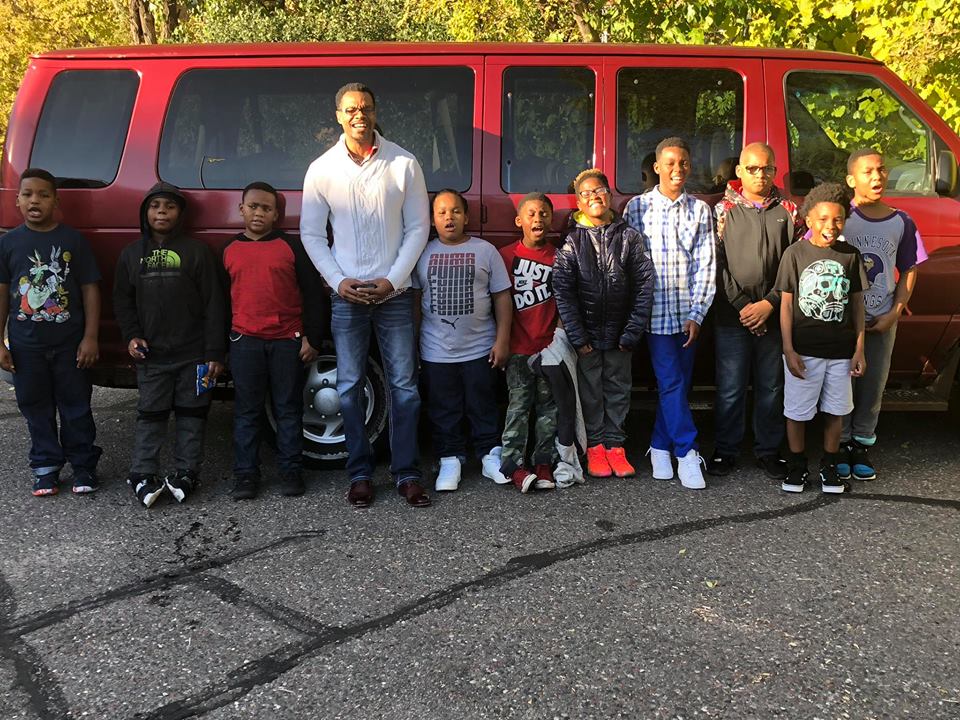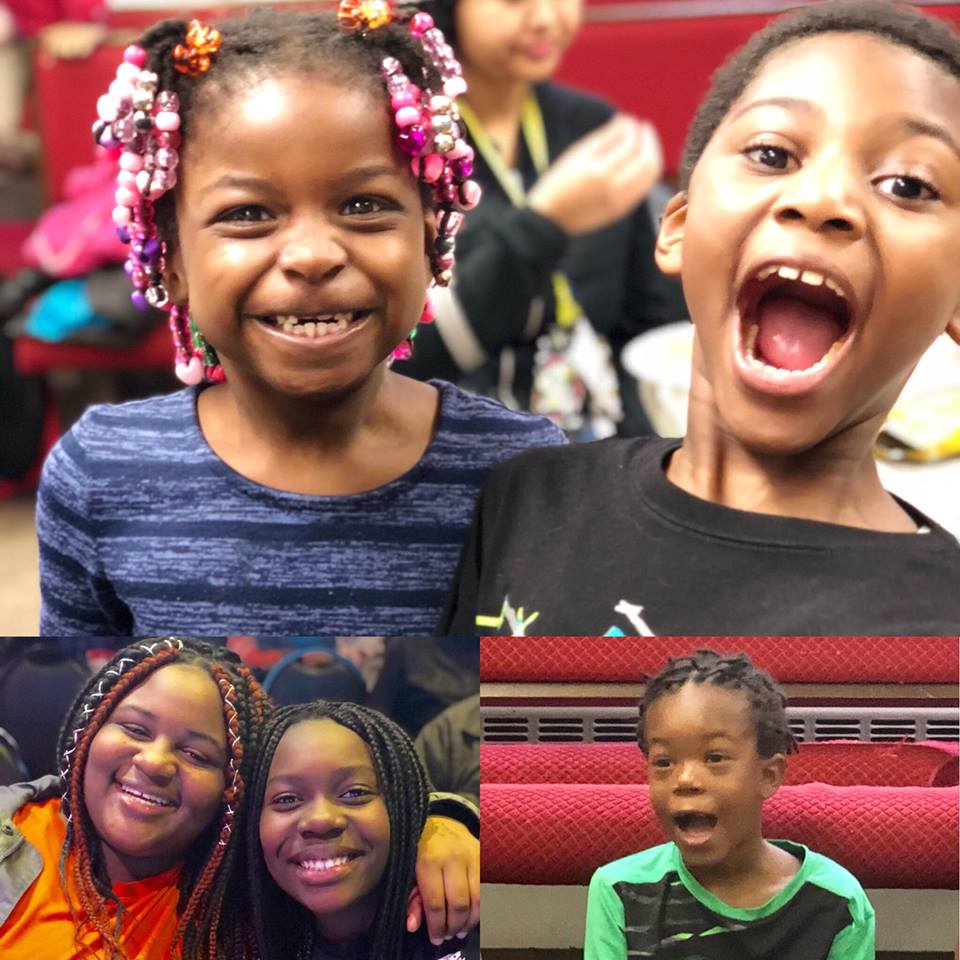WE WIN Institute

Sindiswa Georgiades considers the work of WE WIN Institute, where she directs fund and strategic development, as a continuation of the social justice work her grandfather started. “My grandfather, Matthew Little, actually helped integrate the Minneapolis Fire Department and spent 25 years leading the NAACP in Minnesota,” said Sindiswa. “He’s now passed away, but his work created a lot of changes in terms of equity for African Americans in Minnesota.”
“I worked with a lot of other nonprofits around Minneapolis on organization development, fund development, and evaluation, and one of the things I’ve seen is that infrastructure and capacity are make-or-break things for nonprofits.”
Sindiswa Georgiades, WE WIN Institute
A Family Legacy of Social Justice
WE WIN, a nonprofit, community-based organization, is likewise striving for equitable change, specifically by focusing on youth development within the African American community in the Minneapolis Public Schools. Sindiswa is not just carrying out her grandfather’s legacy, but the ongoing legacy of her mother, Titilayo (Titi) Bediako, the founder and executive director of WE WIN. Titi started her career as a teacher in the Minneapolis Public Schools. She realized the existing curriculum didn’t match the lived experiences of her classroom, which had students who were Hmong, African American, Laos, Latinx, and other ethnic and cultural backgrounds.

To fill the gaps in the public school curriculum, Titi started creating assignments that were representative of her students’ cultures. She would talk with the African American students about the different heroes and sheroes in African American history or help Hmong students map their varied geographies within their classwork so they could recognize themselves in the material. Eventually, Titi wrote a grant to the Women’s Foundation to start a youth weekend program for young women of color. Her daughter, Sindiswa, was one of the first cohort participants. The cohort created a space for young women to feel safe, to feel heard, and to connect with their families’ histories in a positive way. That initial program led to the inception of WE WIN Institute as an organization, which incorporated in 1996.
Engaging Youth, Parents, and Policymakers
Now, almost 25 years later, WE WIN works with over 200 youth annually ages 5-18, as well as with their caregivers, through both in-school and outside of school programming. Its motto: “When we all get to play, WE WIN.” “Whatever their path is, we want our youth to have the characteristics to be good people, to give back to their community, and also have a high level of self-esteem,” said Sindiswa, acknowledging that college is just one path to prepare kids for. And while much of WE WIN’s programming is focused on the African American experience, they also work across different communities. “We’re also honoring indigenous culture and Latinx culture in terms of both supporting community development and youth development,” Sindiswa explained.

After 20 years of work, WE WIN hadn’t seen the needle move on closing the opportunity gap between youth of color and their white peers. So, it started placing the same emphasis on engaging policymakers as it had on direct service to try to push policymakers and education administrators toward systems change. “Parents started presenting a parents’ report to the school board on recommendations of what would help them engage with the school more, and also things they think their kids needed,” said Sindiswa. “That created a shift in our work and also how we engage different policy boards.”
Investing in Core Mission Support
Sindiswa’s experience as a consultant before coming back to the WE WIN team gave her some key insights into what it takes to be sustainable as a nonprofit. “I worked with a lot of other nonprofits around Minneapolis on organization development, fund development, and evaluation, and one of the things I’ve seen is that infrastructure and capacity are make-or-break things for nonprofits,” said Sindiswa. So, to successfully launch its 2016 strategic plan, WE WIN started looking for grant opportunities to support internal capacity and infrastructure.
Fortunately, it received a Nonprofit Infrastructure Grant from Propel Nonprofits at around the same time as being accepted into Youthprise’s Accelerator Initiative Cohort. Both grants aided them in adding to their core mission support. WE WIN used its Nonprofit Infrastructure Grant to update its communication templates, add new computers, upgrade software in its community lab, and start a donor database. Since it works with a highly mobile population, it also invested in a new van to transport program participants.

For Sindiswa, more useful than the tangible investments have been the board development work they’ve done through both Propel’s Nonprofit Infrastructure Grant Program and the Youthprise cohort. “The board development work we did with Amanda [Ziebell Mawanda] at Propel literally gave our board members the tools to start leading the organization and not just following the lead of the staff or executive director,” said Sindiswa. “[The board] setting the strategic goals and objectives in reaching them has been critical in terms of our planning for next steps.” The board chair has also felt more comfortable in a leadership role and in encouraging other board members to do the same.
As part of the Nonprofit Infrastructure Grant Program, WE WIN went through a financial analysis and needs assessment, which Sindiswa said was critical for making sure their strategic plan was also tied to financial objectives for sustainability. “The Propel financial assessment allowed us to identify our weakest areas in funding and organization practices like maintaining a reserve,” Sindiswa noted. The training on how to navigate other funding streams, such as government reimbursement contracts, has given the nonprofit an edge when applying for other grants. “At a recent grant orientation, many of the selected vendors discussed the barriers in implementing the grant because of infrastructure like work plans, capital, evaluation,” said Sindiswa. “WE WIN was not in that position because we have been strengthening and doing that work for 18 months, which allowed us to meet the grant requirements. This may seem small, but our ability to implement services in a timely and competent manner can mean the difference in us receiving future funding.”
Already, the results of investing in the infrastructure supporting WE WIN’s programming is paying off. They’ve been able to expand and create new partnerships. This summer, because of the support from the Nonprofit Infrastructure Grant and Youthprise, they were able to expand their parent engagement work to collaborate with the Native American community. “It was a profound experience, and it’s qualitative so might not be immediately reflected in our outputs,” said Sindiswa. But, she feels it’s exactly this work that’s essential to having more youth and families succeed. “For me, one of the best ways of achieving goals like closing the achievement gap and increasing livability is not by segmenting everybody off, but by finding commonalities and figuring out how we can address these things together as a more whole community.”
For more about WE WIN, visit its website: https://www.we-win.org/.
Photos courtesy of WE WIN Institute.
Related Services
-
Strategic Consulting
As a leader, you want to make sure your organization has a shared vision for the future, and the strategy to get there. Propel Nonprofits’ consultants are experienced at providing strategic planning, board development, and other strategic services to organizations
